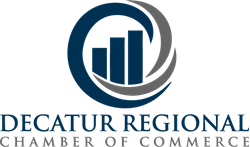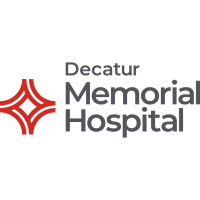Nuclear Cardiology
Works closely with cardiologist to perform, clinical diagnostic and therapeutic nuclear medicine testing contributing to the efficient operation of the department and promoting the philosophy, to ensure the quality and continuity of patient care. Maintains the standard of care delivered to adults and geriatrics.
Required Skills
Essential Functions and Job Duties
- Responsible for Cardiac Stress testing and amyloid studies.
- Performs tests that utilize radionuclides for the diagnosis and therapy of disease.
- Verifies ordered exams.
- Explains testing to patient; prepares patient for exam; administers radioactive isotopes.
- Prepares reagent kits used in testing; measures the radioactive dosage; assists in giving therapy doses.
- Checks all equipment for quality control.
- Adheres to all safety precautions which include radiation safety, knowledge of isolation procedures, bloodborne pathogen precautions, use of universal precautions and film badge reading.
- Maintains IDNS, ARRT or NMTCB registration and CPR certification; remains current in developing trends in the field of nuclear medicine.
- Sets up equipment, makes proper adjustments on cameras and/or computers; performs quality control procedures.
- Understands CT protocol and techniques as required for attenuation correction and diagnostic imaging.
- Maintains clean, neat and orderly work area; maintains appropriate supply levels.
- Complies with all federal and state license and record keeping procedures and requirements.
- Perform other duties as assigned.
Qualifications
To perform this job successfully, an individual must be able to perform each essential duty satisfactorily. The requirements listed below are representative of the knowledge, skill, and/or ability required.
- Knowledge of human anatomy, physiology, pathology, and medical terminology.
- Knowledge of federal and state regulations applicable to Nuclear Medicine.
- Knowledge of radiation protection and safety.
- Ability to see details at close range (within a few feet of the observer).
- Ability to watch gauges, dials, or other indicators to make sure a machine is working properly.
- Ability to speak with persons of various social, cultural, economic and educational backgrounds.
- Ability to give full attention to what other people are saying, taking time to understand the points being made, asking questions as appropriate, and not interrupting at inappropriate times.
General Skill Requirements
In addition to the Essential Functions and Qualifications listed above, to perform the job successfully an individual must also possess the following General Skill Requirements.
- Adaptability – Adapts to changes in the work environment; Manages competing demands; Accepts criticism and feedback; Changes approach or method to best fit the situation; ability to work with frustrating situations; work under pressure and on an irregular schedule such as unscheduled overtime, unanticipated changes in work pace; Works with numerous distractions.
- Attendance and Punctuality – Schedules time off in advance; Begins working on time; Keeps absences within guidelines; Ensures work responsibilities are covered when absent; Arrives at meetings and appointments on time.
- Communications – Expresses ideas and thoughts verbally; Expresses ideas and thoughts in written form; Exhibits good listening and comprehension; Keeps others adequately informed; Selects and uses appropriate communication methods.
- Cooperation – Establishes and maintains effective relations; Exhibits tact and consideration; Displays positive outlook and pleasant manner; Offers assistance and support to co-workers; Works cooperatively in group situations; Works actively to resolve conflicts.
- Job Knowledge – Competent in required job skills and knowledge; Exhibits ability to learn and apply new skills; Keeps abreast of current developments; Requires minimal supervision; Displays understanding of how job relates to others; Uses resources effectively.
- Judgment – displays willingness to make decisions; Exhibits sound and accurate judgment; Supports and explains reasoning for decisions; Includes appropriate people in decision-making process; Makes timely decisions; ability to work with and maintain confidential information.
- Problem solving – Identifies problems in a timely manner; Gathers and analyzes information skillfully; Develops alternative solutions; Resolves problems in early stages; Works well in group problem solving situations.
- Quality – Demonstrates accuracy and thoroughness; Displays commitment to excellence; Looks for ways to improve and promote quality; Applies feedback to improve performance; Monitors own work to ensure quality.
- Quantity – Meets productivity standards; Completes work in timely manner; Strives to increase productivity; Works quickly; Achieves established goals.
- Concentration – Maintains attention to detail over extended period of time; continually aware of variations in changing situations.
- Supervision – ability to perform work independently or with minimal supervision; ability to assign and/or review work; train and/or evaluate other employees.
Required Experience
Education and/or Other Requirements
Graduate of an approved School of Nuclear Medicine Technology
CNMT: Certification as a Nuclear Medicine Technologist through NMTCB Nuclear Medicine Technology Certification Board) – OR –
T.(N)(ARRT): Registered Technologist in Nuclear Medicine Technology by ARRT (The American Registry of Radiologic Technologists)
Nuclear Medicine Technologist License with IEMA (Illinois Emergency Management Agency)
CPR certification.

